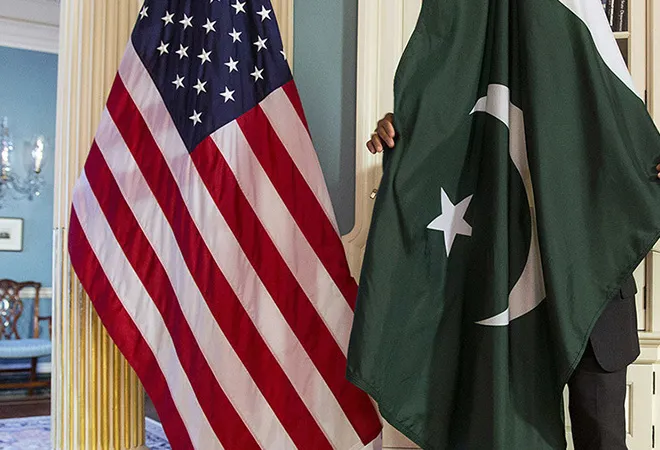The United States has imposed new sanctions targeting Pakistan’s long-range ballistic missile program, eliciting strong criticism from Islamabad. The sanctions, announced on Wednesday, focus on Pakistan’s state-owned National Development Complex (NDC) and three associated commercial entities: Akhtar and Sons Private Limited, Affiliates International, and Rockside Enterprise.
These measures, enacted under Executive Order 13382, aim to curb the proliferation of weapons of mass destruction and their delivery mechanisms. The US alleges that the NDC, headquartered in Islamabad, has been instrumental in advancing Pakistan’s ballistic missile capabilities, including the Shaheen-series missiles. It further accuses the three commercial entities of procuring critical equipment and supplies to support this program.
In response, Pakistan’s Foreign Office (FO) termed the sanctions “unfortunate and biased,” arguing that such actions undermine regional peace and exacerbate military asymmetries. FO spokesperson Mumtaz Zahra Baloch emphasized that Pakistan’s strategic capabilities are solely designed to defend its sovereignty and ensure stability in South Asia. She criticized the US for its perceived double standards, noting that while Pakistan faces stringent restrictions, licensing requirements for advanced military technologies have been waived for other nations.
The FO further highlighted past instances where private entities were sanctioned without substantive evidence, accusing the US of relying on “doubts and suspicions.” The statement added that such discriminatory practices threaten the credibility of global nonproliferation regimes and compromise both regional and international security.
US officials, however, defended the sanctions as a necessary step to safeguard their national security and uphold the global nonproliferation regime. Vedant Patel, the Principal Deputy Spokesperson for the US State Department, reiterated Washington’s longstanding concerns over Pakistan’s missile program. Patel clarified that the sanctions are not intended to impede broader US-Pakistan cooperation, which spans various domains, including counterterrorism and economic development.
Matthew Miller, another State Department spokesperson, emphasized the specific focus of the sanctions, stating they are aimed at preventing the abuse of US exporters and financial systems by proliferators. He affirmed the US commitment to constructive engagement with Pakistan, despite the recent tensions.
The latest measures have reignited a broader debate about the implications of Pakistan’s strategic programs. The NDC, described as a pivotal institution in Pakistan’s missile development, has faced international scrutiny for its role in acquiring specialized vehicle chassis and missile testing equipment. Meanwhile, the sanctioned commercial entities have allegedly facilitated critical procurements for the missile program from their bases in Karachi.
As diplomatic tensions escalate, Pakistan’s leadership has underscored the sanctity of its strategic program, calling it a “sacred trust” of the nation’s 240 million people. While both nations acknowledge the importance of their bilateral relationship, the sanctions highlight the enduring complexities and competing priorities shaping US-Pakistan ties.




